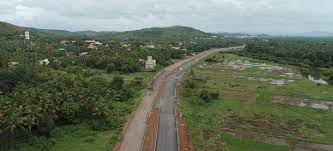In the heart of Goa, the village of Bhoma has become a focal point of resistance against the proposed expansion of National Highway 748. Residents are voicing strong opposition to the project, fearing it threatens their ancestral lands, cultural heritage, and way of life.
The expansion plan, which includes widening the highway through the village, has sparked widespread concern among locals who argue that it will disrupt the community’s fabric and sacred sites. The villagers’ apprehensions are rooted in the potential demolition of homes and temples that have stood for generations. They contend that the expansion disregards the cultural and historical significance of these structures, which are integral to Bhoma’s identity. The community has been vocal in its demand for an alternative route that would preserve the village’s integrity.
Government officials have attempted to assuage fears by stating that the expansion will minimize impact on existing structures. However, trust remains low among villagers who feel excluded from the decision-making process. The lack of transparency and consultation has only intensified their resolve to protect their heritage.
The situation in Bhoma underscores the broader tension between infrastructure development and cultural preservation. While modernization is essential for economic growth, it must not come at the expense of erasing communities’ histories and identities. The villagers’ stand is a poignant reminder of the need for inclusive planning that respects and integrates the voices of those most affected.
As the debate continues, Bhoma’s residents remain steadfast in their commitment to safeguarding their village. Their struggle highlights the importance of balancing progress with preservation, ensuring that development projects honor the past while building for the future.
Highway Plans Spark Outcry in Goa Village


